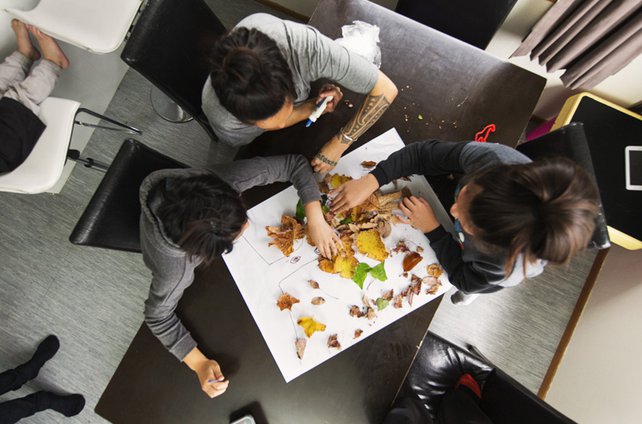Before you do anything, it's important to get a sense of where people are at, and how they are doing. Whatever your budget, asking questions and seeking to understand is the perfect place to start (and continue!).

Before you do anything, it's important to get a sense of where people are at, and how they are doing. Whatever your budget, asking questions and seeking to understand is the perfect place to start (and continue!).

Building a campaign based on research will ensure the needs of the people you’re supporting is what guides every step of the process. Good research will inform your language, tone and timing, and reveal any 'pressure points'.
Research can be a useful tool for reassuring and validating, and by reflecting the findings back to the community it helps remind people they're not alone. Evaluating how you’re doing can guide your activity, not to mention coming in handy when it comes time to ask for funding (see Showing your impact).
Quantitative research
This is research based on objective facts, statistics and data. It requires a relatively large sample size so you can be confident that your results are representative. The Census, online surveys, and some phone surveys are quantitative. Statistically significant quantitative research can provide compelling results which are difficult to argue with.
Qualitative Research
Qualitative research provides insights into how people are thinking – what they think, why they think it, and what motivates them. As well as allowing you to capture and explore people’s unique perspectives, qualitative research can help you develop possible themes or topics that can be investigated in future quantitative research. It can also provide insights into the best language to use.
The following are all excellent ways to undertake qualitative research.
When you have some people in a room (maybe 6–12) and have an interviewer asking questions about a particular topic, then that’s a focus group! They are a great way to understand different viewpoints and the degree to which these vary within a group.
Research doesn’t have to be formal to be useful. Water cooler conversations, interactions on social media, and whanaungatanga at a meeting can reveal valuable insights into people’s mindsets.
These are typically longer detailed interviews with a person who has played (or is playing) an important role within a community, or is a subject matter experts.
All Right? carries out regular research on the mental health of our community, including with specific populations (e.g. Māori, Pacific, Parents, the LGBTQIA+ community, and Culturally and Linguistically Diverse communities)
Sharing your findings with the community is important. Here's a selection of infographics we've created to share our findings:
Here's a spreadsheet template to record anecdotal information about how your community is doing
The WHO-5 is a self-rated measure of emotional wellbeing. A score of 0 represents the lowest level of emotional wellbeing, 25 represents the highest level, and scores below 13 may indicate risk of poor mental health.
This is a 14 item scale of mental wellbeing covering subjective well-being and psychological functioning. The minimum scale score is 14 and the maximum is 70.
The Canterbury Wellbeing Index brings together high-quality information about community wellbeing in Christchurch City, and Selwyn and Waimakariri Districts in an on-line format. As well as drawing from the data of many different local and national agencies, the Index incorporates information from the annual Canterbury Wellbeing Survey which was completed by nearly 3,000 randomly selected greater Christchurch residents in April and May 2018.
Research commissioned by All Right? is available to download on the All Right? website.